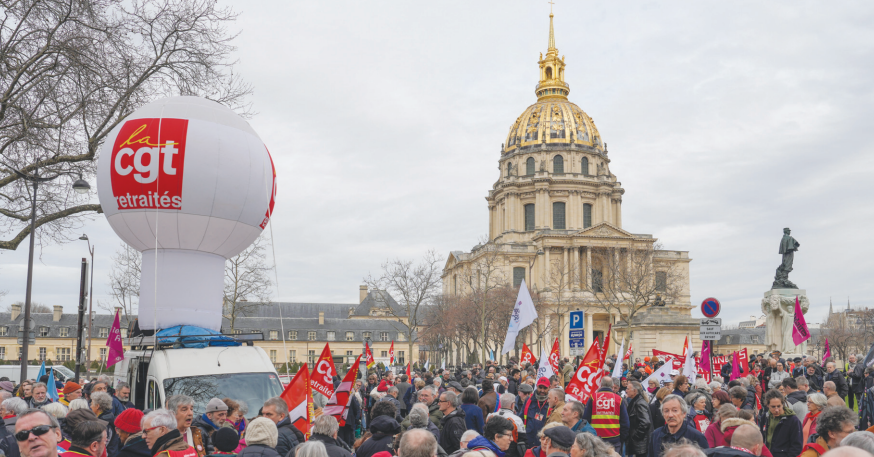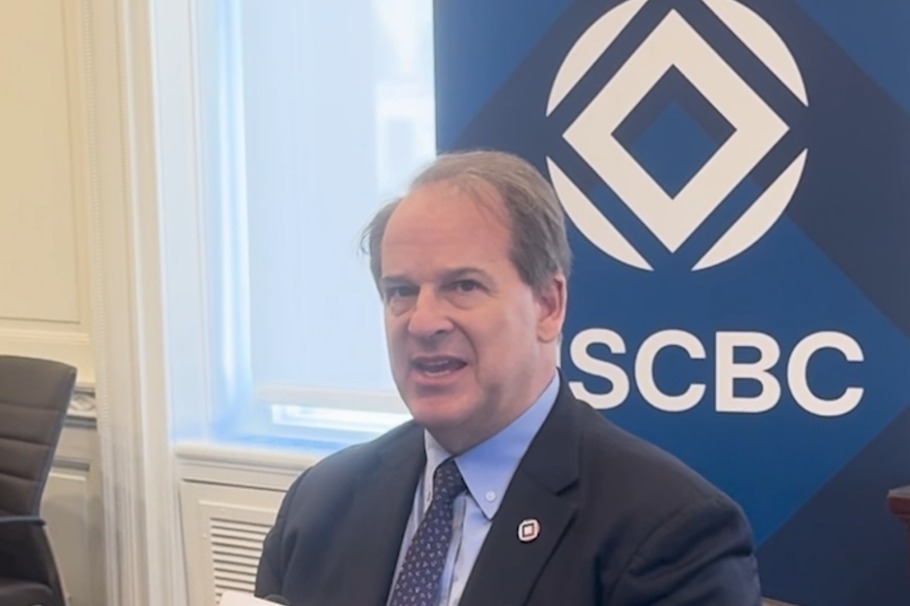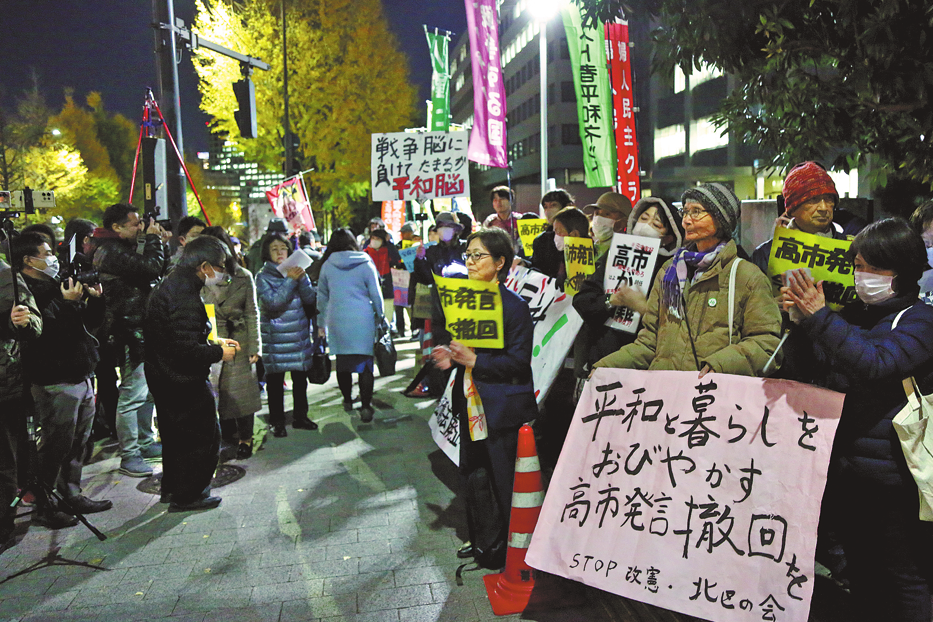French govt defiant on reforms amid protests


Opponents call votes of no confidence as bitter pension changes row goes on
The French government remained defiant on deeply unpopular pension reforms ahead of no-confidence motions on Monday, which were filed after Prime Minister Elisabeth Borne forced the changes through last week without a parliamentary vote.
The use of a controversial clause to bypass Parliament, and bring about a change in the retirement age from 62 to 64, was invoked on Thursday.
Since then, there has been widespread public anger, with ongoing nationwide protests, some involving violent clashes with police.
The Agence France-Presse news service reported that the government's move to sidestep Parliament, seen by opponents as undemocratic, has sparked trade union calls for more strikes and raised fears that France could see even more violent anti-government protests, such as those witnessed during the 2018 Yellow Vest movement, which was over high fuel costs.
The motions of no confidence in the government were filed on Friday by a small group of centrist lawmakers, known as the Liot bloc, and by the far-right National Rally of Marine Le Pen.
"There will be no majority to bring the government down, but it will be a moment of truth," Finance Minister Bruno Le Maire said of the two no-confidence motions that were due to be debated from 3pm on Monday.
Charles de Courson, the author of one of the two no-confidence votes and France's longest-serving lawmaker, told France Inter radio on Monday that bringing the government down was "the only way of stopping the social and political crisis in this country".
"If we continue like this, no one will control anything. That's what all the trade union leaders are telling us... that they're seeing things becoming more radical," he said.
France has seen many days of strike action since January, when the government reiterated its pension reform intentions, first revealed in 2017 but delayed by the pandemic. Industrial action planned this week is expected to disrupt public transport, refineries, universities and garbage collection as unions seek to force the government into abandoning the pension changes.
Should one of the no-confidence motions be passed, the pensions bill would be rejected, the Cabinet would have to resign and President Emmanuel Macron would have to appoint a new administration. The government is certain it will survive both votes, since the conservative Republicans Party has pledged it will not support either of the no-confidence motions
"Let's get clarity. The vote means clarity," Aurore Berge, chief of the pro-government group of lawmakers, told broadcaster Franceinfo.
"It's about one sole question: is the pension reform indispensable or unbearable for the French public?"
In an interview with Le Parisien newspaper at the weekend, Le Maire said the reform was "vital" for the country and called on lawmakers to "face their responsibilities".
"Is it a good idea to overthrow the government and cause political disorder over the pensions reforms? The answer is clearly no," he added.
Macron has always insisted the reforms are an important step in securing the pension system, though polls keep showing a majority of the public is against the changes.
































